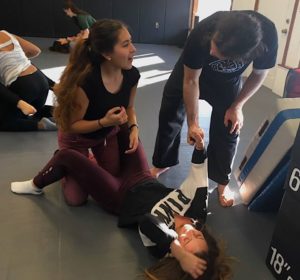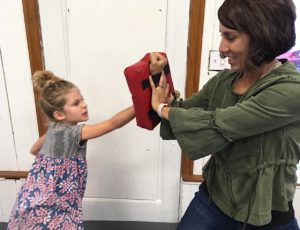Self Defense & Outreach
We offer Self-Defense seminars that are open to the public as well as fully customizable private seminars. If you are interested in our public self defense classes, click on the events tab and see what we have currently available. If interested in a private self defense for 1-10 people, sign up using the interface below.
Content
In our public self defense classes, we use physical drills, games, and discussion to cover:
Situational awareness (noticing what is going on around you)
Setting physical boundaries (knowing what is okay for you and what is not okay
Using your voice and body language as a tool (saying “no” and “stop”)
Understanding who the threat is (acknowledging that family and friends are statistically a bigger threat than strangers and that individual identity may dictate who the threat is)
Simple strikes (how to hit with your elbows and knees)
Breaking simple grabs (how to escape a wrist grab)
Escaping a pin (how to get off the ground if someone is on top of you
For our private seminars, we can use this same formula, focus more on a specific element, and/or are happy to include outside material your group may be interested in.
Student Numbers
In our seminars, we try and keep the ratio of teachers to students to around 1 instructor to every 5 students. This insures that everyone who takes the seminar gets some personal attention as well as time to play with the ideas with their fellow students.

Student Ages
In all our Self-Defense seminars (public and private), we ask that children who are between the ages of 6-12 have an adult present. This means the adult can either participate in the seminar, (which we recommend as a way of setting the example) or sit and watch. We allow students who are 13 and up to participate without an adult present. Experience has taught us that this policy helps with class management, makes for smoother classes and a more positive experience for all.
Challenges and Concerns of Students
Self defense is a physical, mental, and emotional endeavor. In this regard, it will challenge students on all three of these fronts. With our seminars, we ask people when they sign up to (if comfortable doing so) please share with us any challenges they may have in participating [e.g. medical/physical ailments, language differences, learning disabilities, etc.]. We are also happy to know of any concerns they may have concerning working with others [e.g. adverse to having other people touch them, etc]. We use this information to help us customize the seminar with the goal being to challenge, but not overwhelm students.
